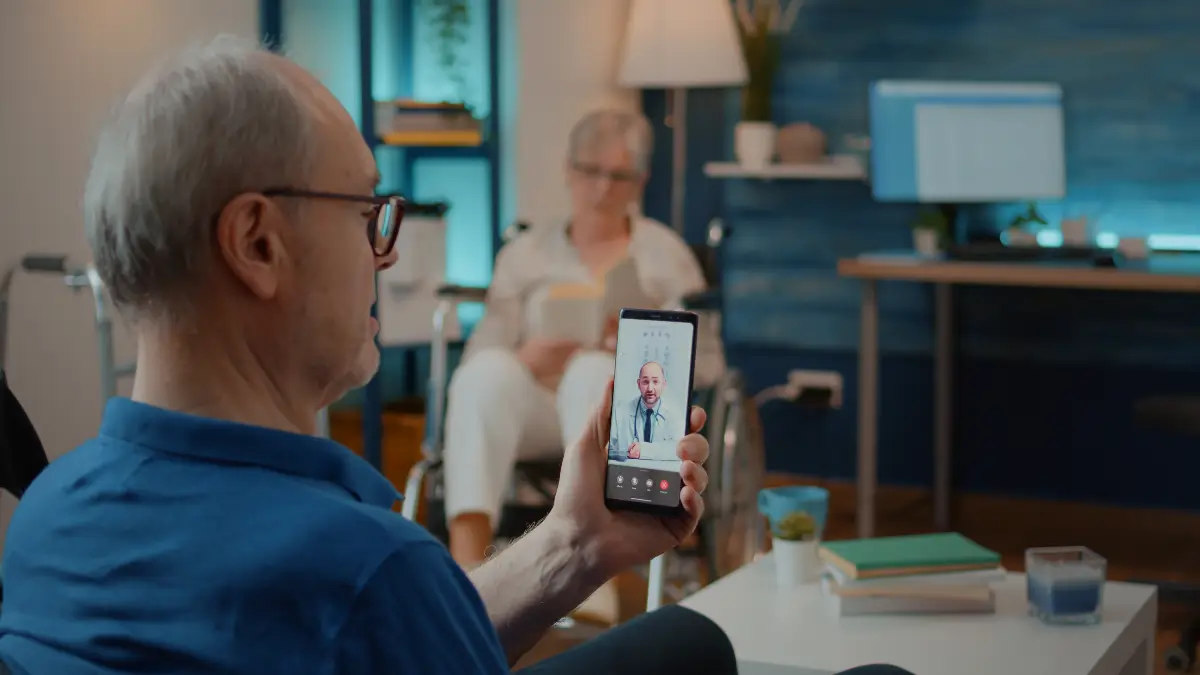You’re told to chase the big promotion, the bigger salary, and online fame. A recent poll found 80% of young adults are aiming to get rich, with 50% also wanting to be famous. We all follow this script, hoping it leads to a good life.
But what if it’s a dead end? An unprecedented 85-year Harvard study followed thousands of people from youth to old age and found something stunning.
The single biggest factor for a long, happy, and healthy life has nothing to do with success in the traditional sense. This article breaks down that powerful secret and shows you exactly how to build your own good life, based on nearly a century of proof.
Why Good Friendships Are Good for Your Health

The main point of the Harvard study is simple. The quality of your relationships is the best sign of your future health and happiness. It is more important than your genes, your social class, your IQ, or even your cholesterol levels at age 50.
This idea was so new it even surprised the scientists. The director, Dr. Robert Waldinger, said they didn’t believe it at first.
He asked, “How could warmer relationships make it less likely that you would develop coronary artery disease or arthritis?”. The answer is that our relationships are a key part of how our bodies work.
The Big Surprise for Scientists
The study’s information shows a clear link to biology. Being lonely is a type of stress that lasts a long time. Scientists say being lonely is as bad for your health as smoking half a pack of cigarettes a day or being obese.
On the other hand, having strong friendships helps protect your body. People in the study with good relationships were less likely to get sick with diseases like heart disease, type 2 diabetes, or arthritis as they got older.
This shows that the study’s main point is about your body, not just your feelings. There is a direct link between your mind (feeling connected or lonely) and your body (being healthy or sick). This happens because of how your body handles stress.
Life is full of stress. But our relationships help us manage it. When you face a problem, talking to someone helps your body and brain calm down. If you don’t have those connections, your body can stay in a “fight-or-flight” state.
This leads to more stress hormones and inflammation. Over time, this damages your body and can lead to sickness.
How Your Friends Help You Handle Stress
The power of relationships was seen directly in the study. Researchers looked at people in their 80s.
They found that on days when happily partnered people had more physical pain, their mood stayed happy. But for people in unhappy relationships, more physical pain also meant more emotional pain.
This shows a good relationship acts like a shield. It separates physical pain from emotional pain.
A strong connection doesn’t remove problems, but it changes how you feel them. This helps explain why people with strong friendships are happier, healthier, and live longer than people who are alone.
How Friendships Protect Your Brain
Good relationships also protect your brain. The study found that people in their 80s who felt they could count on their partner had better memories.7 People who felt they could not count on their partner had their memories fade sooner.
This brain protection did not mean the relationship had to be perfect. The researchers said couples could argue often.
But “as long as they felt that they could really count on the other when the going got tough, those arguments didn’t take a toll on their memories”. This shows the most important thing for brain health is trust.
It’s not about avoiding fights. It’s about knowing someone has your back. This feeling of safety seems to help protect the brain as it gets older.
The Link Between Relationships and Money
One of the most interesting findings was about money. Most people think being smart is what makes you rich. The study found this was not true. The warmth of a person’s relationships was a better predictor of how much they would earn.
Dr. George Vaillant led the study for over 30 years. He found that men with the “warmest relationships” earned $141,000 more per year at their peak salary than men with the worst relationships.
He found no major income difference between men with an IQ of 110 and men with an IQ over 150. This suggests that skills like empathy and connecting with others are more valuable for success than just being smart.
But this creates a possible problem. Other studies show that as people make more money, they spend less time with others, like family and neighbors. They spend more time alone.
This can be a dangerous cycle. A person might use good social skills to become successful. But that success can lead them to ignore the very relationships that made them happy and healthy.
This is a warning for anyone focused on their career. Success that costs you your friends is not a real win. According to the Harvard data, it hurts your long-term health and happiness.
Your Social Fitness Plan: 4 Steps for a Better Life

Knowing the science is the first step. Using that knowledge to make changes is what matters. The Harvard study gives us a clear plan to build the relationships that lead to a good life. This section gives you a practical guide to do just that.
Change How You Think: Practice “Social Fitness”
The first step is to think differently. Dr. Waldinger suggests we think of our relationships as a practice he calls “Social Fitness”. It’s like physical fitness.
You don’t get in shape by going to the gym once. Your social life also needs regular work. Our relationships are alive and need exercise to stay strong. Friendships can “wither away from neglect”.
This new way of thinking gives you more control. Instead of thinking, “I’m lonely,” you can think, “What social exercise can I do today?”. It turns a big goal like “be less lonely” into small, easy actions.
For example, you can do a “15-second action.” This is just sending a quick text to a friend to say you are thinking of them. Doing this over and over can make your friendships stronger. The idea of Social Fitness makes the study’s advice easy to follow.
Step 1: Check on Your Relationships
The first step in any fitness plan is to see where you are now. Dr. Waldinger says you can run a “mini-Harvard study” on yourself to see who is in your social world. This means you need to be honest with yourself about your friends and family.
List Your People:
Write down the important people in your life. This includes your partner, family, close friends, coworkers, and neighbors. Also, list any groups you are in, like a book club or sports team.
Check the Quality:
For each important person, ask yourself two questions. First, does this person give me energy or drain my energy?. Second, do I feel I could count on this person if I needed help?. This second question is the most important for your health.
Find What You Need:
Think about what your friends give you now and what you wish you had more of. You might have friends to do fun things with but no one to talk to about serious problems.
You might have a supportive family but no friends who share your hobbies. Finding these gaps shows you where to put your energy next.
Step 2: Improve How You Handle Problems
Good relationships start with you. George Vaillant’s research found that how we handle life’s problems is a key part of being happy. He called these our “mature coping mechanisms”. Think of these as your internal software.
A person who blames others or has angry outbursts will push people away. But a person who can find humor in bad situations, help others, and be patient is more resilient. They are also a better friend and partner.
So, working on how you react to stress is a great way to improve your relationships. It’s an “inside-out” way to practice Social Fitness.
This table shows the difference between immature and mature ways of coping. It also gives you an action step for 2025.
| Coping Style | Immature Way (“Sad-Sick”) | Mature Way (“Happy-Well”) | A 2025 Action Step |
| Altruism | Complaining but rejecting help; only thinking of your own problems. | “Doing for others what you wished had been done for yourself.” | Volunteer for a cause you like or help a coworker. |
| Humor | Sarcasm that pushes people away. | Being able to laugh at yourself and find the funny side of problems. | When something small goes wrong this week, try to find one funny thing about it. |
| Suppression | Pretending a problem isn’t there until it gets worse. | “Patience and stoicism.” Seeing a problem but choosing not to react right away. | When you feel a strong negative emotion, take three deep breaths before you act. |
| Anticipation | Worrying about the worst possible outcome. | “Allowing painful emotions to come consciously to mind before the event.” Planning for future problems. | If you have a stressful event coming up, spend 10 minutes writing down possible problems and one way to handle each. |
Step 3: Give People Your Full Attention
In a world full of distractions, your attention is your most valuable gift. The Harvard study shows that where you put your attention affects your relationships and your life.
Dr. Waldinger learned a lesson from one of his teachers, John Tarrant: “Attention is the most basic form of love”. Giving someone your full, undivided attention is the best thing you can give them.
You can practice this with a few simple habits for 2025:
- Replace Screen Time with People Time: This is one of Dr. Waldinger’s top tips. Choose to put down your phone and talk to the people with you.
- Practice the 5-Minute Favor: Give a friend or family member five minutes of your full attention. Put your phone away, turn off the TV, and just listen. This small act can make someone feel very important.
- Refresh Your Relationships: Doing the same things over and over can make any relationship feel boring. Do something new together. You could take a walk in a new park, plan a date night, or start a new hobby together.
- Reach Out and Fix Things: Call that family member you haven’t spoken to in a while. Dr. Waldinger says that family fights cause a “terrible toll on the people who hold the grudges”. Using your attention to heal a broken relationship is a powerful act of Social Fitness.
How to Connect in a Digital World

The advice from the Harvard study is more important now than ever. The basics of friendship have not changed. But the world we live in has. To build good relationships today, we have to use the study’s lessons to deal with the problems of a lonely, digital world.
The Loneliness Problem
We all need to feel connected to others. It is a basic human need. When we don’t have that, it hurts us. We are now in a global loneliness crisis. The Harvard study shows this is a real public health problem.
The latest numbers are serious. A third of all adults in the U.S. say they feel lonely. Young people are feeling it the most. 57% of Gen Z adults (ages 18-24) say they are lonely.
Young men are having a very hard time. One in four U.S. men under 35 says he feels lonely “a lot of the day.” This makes the U.S. stand out among other wealthy countries.
The Harvard research tells us these numbers are a warning. They point to future health problems, like sickness, mental health issues, and shorter lives.
Technology: A Tool for Connection and Isolation
Technology is a big part of our social lives today. It presents a strange problem. The tools made to connect us can also make us feel more alone. New data shows that 57% of U.S. adults think technology has made loneliness worse.
But at the same time, 62% of adults say technology helps them keep friendships they would otherwise lose.
The answer is not to get rid of technology. The answer is to use it with a purpose. The danger is when we mindlessly choose “screen time for people time,” as Dr. Waldinger warns.
The good news is we can use technology as a bridge to real-life connections, not as the final stop.
Your 2025 Toolkit for Making Friends
To use the study’s advice today, you need to actively look for ways to connect. There are many new tools and apps that can help. Here is a list of resources to help you practice Social Fitness in 2025.
- For Finding Groups with Shared Interests:
- Meetup: This is a popular app for meeting local people who like the same things you do. You can find groups for hiking, coding, board games, or book clubs. Meetup helps you find in-person events where you can make friends naturally.
- For Quick, Casual Meetups:
- Friendchise: This is a newer app that makes it easy to meet up without a lot of planning. It helps you set up quick meetups for coffee or a meal. You can create a plan and invite people, or join a plan someone else made.
- Timeleft: This app sets up small group dinners. An AI matches six strangers for a dinner. It’s a low-pressure way to meet several new people at once.
- For “Swipe-Style” Friend-Finding:
- Bumble BFF: This app uses the same swipe-and-match style as the dating app. But it’s just for finding friends. You can make a profile, list your interests, and chat with people before you meet them.
- For Online and Niche Groups:
- Discord and Facebook Groups: These are great for connecting with people all over the world who have very specific interests. You can find groups for video games or work topics. These online groups can be the start of real friendships that move offline.


